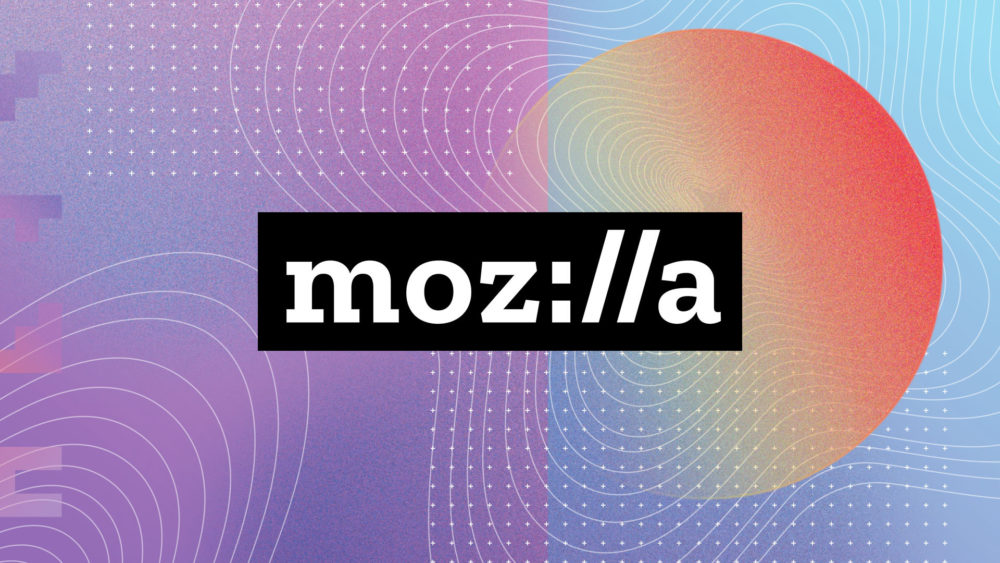LAURA CHAMBERS, CEO, MOZILLA CORPORATION
As Mark shared in his blog, Mozilla is going to be more active in digital advertising. Our hypothesis is that we need to simultaneously work on public policy, standards, products and infrastructure. Today, I want to take a moment to dive into the details of the “product” and “infrastructure” elements. I will share our emerging thoughts on how this will come to life across our existing products (like Firefox), and across the industry (through the work of our recent acquisition, Anonym, which is building an alternative infrastructure for the advertising industry).
Across both pillars (product and infrastructure), we maintain the same goal – to build digital advertising solutions that respect individuals’ rights. Solutions that achieve a balance between commercial value and public interest. Why is that something for Mozilla to address? Because Mozilla’s mission is to build a better internet. And, for the foreseeable future at least, advertising is a key commercial engine of the internet, and the most efficient way to ensure the majority of content remains free and accessible to as many people as possible.
Right now, the tradeoffs people are asked to make online are too significant. Yes, advertising enables free access to most of what the internet provides, but the lack of practical control we all have over how our data is collected and shared is unacceptable. And solutions to this problem that simply rely on handing more of our data to a few gigantic private companies are not really solutions that help the people who use the internet, at all.
These are the problems Mozilla hopes to address, through a product strategy that is grounded on our core principles of privacy, openness and choice. We know that not everyone in our community will embrace our entrance into this market. But taking on controversial topics because we believe they make the internet better for all of us is a key feature of Mozilla’s history. And that willingness to take on the hard things, even when not universally accepted, is exactly what the internet needs today.
Demonstrating a way forward through our own products
One of the most obvious places we will do this work is across our own products, including Firefox, Fakespot, and likely new efforts in the future. Advertising on our products will remain focused on respecting the privacy of the people who use them. Those are table stakes for us, fundamental qualities which will be our north star. From a technical perspective, we will be developing and utilizing advanced cryptographic and aggregation techniques. Through the testing, iteration and deployment of those techniques, we seek to both improve our standardization efforts and prove to the industry at large that advertising can sustain a business without exposing the personal data of every individual online.
As part of this work, we are also committing to being transparent and open about our intent and plans prior to launching tests or features. With that, I want to build on the apology Mark made in his blog. Several weeks ago, and before we explained our intent of how the technology was intended to work, we landed some code in Firefox as part of an origin trial of Privacy Preserving Attribution (PPA). While the trial was never activated for external users, this understandably led to confusion and concern that we are working to address. We will redouble our engagement with regulators and civil society to address any concerns. There will be much more to come about our work within our products, and you will have time to ask questions and give us feedback.
Building better technology for the industry
In parallel to our existing consumer products, we have the opportunity to build a better infrastructure for the online advertising industry as a whole. Advertising at large cannot be improved unless the tech it’s built upon prioritizes securing user data. This is precisely why we acquired Anonym.
Anonym is building technology that can provide more privacy-preserving infrastructure for data sharing between advertisers and publishers, in a way that also supports a level playing field rather than consolidating data in a few large companies.
Advertising will not improve unless we address the underlying data sharing issues, and solve for the economic incentives that rely on that data. We want to reshape the industry so that aggregated population insights are the norm instead of platforms sharing individual user data with each other indiscriminately.
Anonym is building the technology needed to enable that, with privacy-preserving techniques such as differential privacy, which adds calibrated noise to data sets so that the individual user data is kept as private as possible, while still being useful in aggregate. Calculations on that data occur in secure and private environments. The system is designed such that humans don’t have access to individual data. The outputs are aggregated and anonymized, then Anonym destroys the individual data. This pragmatic solution inspires us to envision a world in which digital ads can be both effective and privacy-preserving. It’s not impossible.
A better future
As I said earlier in this blog, we do this fully acknowledging our expanded focus on online advertising won’t be embraced by everyone in our community, and knowing that as we create innovative approaches we will need to account for our users’ evolving expectations. That’s never a comfortable position to be in, but we firmly believe that building a better future for online advertising is critical to our overall goal of building a better future for the internet. I would rather have a world where Mozilla is actively engaged in creating positive solutions for hard problems, than one where we only critique from the sidelines. We will continue to work with others to grapple with the bigger question of how to find alternative solutions to advertising for funding the internet’s future, but we cannot afford to ignore the reality we live in now.
But that does not mean any of us should have to accept the broken advertising models we have today. As we’ve done throughout our history, Mozilla will pave the road to a better future through influencing public policy, improving standards, and through actively creating better products and infrastructure. And, most importantly, we will do this together with the thousands of other companies, advocates, policymakers and concerned internet users who are seeking better options and more control over their online experiences.
This post is also available in: Deutsch (German) Français (French)



